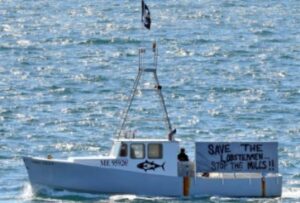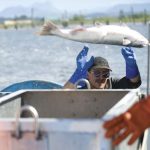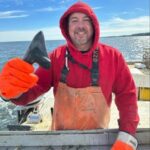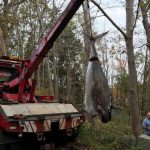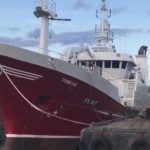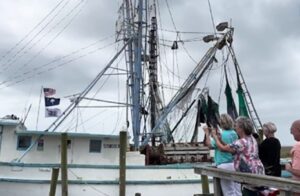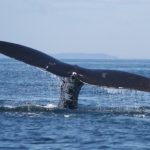Monthly Archives: June 2015
Our View: Facts prevail in House vote on fisheries – seeing through an environmentalist-created fog
 In politics, repeating an argument so frequently and with such authority as to allow it to become accepted as fact is a familiar tactic. But the fact in this case is that the 10-year rebuilding benchmark so jealously protected by advocates such as Pew Charitable Trust, the Conservation Law Foundation and even the president’s policy advisers is the genuinely arbitrary figure, with no basis in data. The fact is that data collected under the proposals in HR 1335 and the amendment would bring it in from more sources and would necessarily provide better assessments for administrators. Read the rest here 08:51
In politics, repeating an argument so frequently and with such authority as to allow it to become accepted as fact is a familiar tactic. But the fact in this case is that the 10-year rebuilding benchmark so jealously protected by advocates such as Pew Charitable Trust, the Conservation Law Foundation and even the president’s policy advisers is the genuinely arbitrary figure, with no basis in data. The fact is that data collected under the proposals in HR 1335 and the amendment would bring it in from more sources and would necessarily provide better assessments for administrators. Read the rest here 08:51
Connecticut’s Controversial Shellfish Bill Dead For 2015
The controversial bill, which the legislature’s legal staff warned was potentially unconstitutional, was “recommitted” to the General Assembly’s Environment Committee Saturday. A coalition representing the biggest shellfishing companies in the state, together with several influential lawmakers, had been seeking legislation to create a new shellfishing council to direct all state shellfishing regulatory policies. Malloy’s administration opposed the bill and also opposed the budget-related plan to shift the aquaculture unit from one state department to another. Read he rest here 08:20
NOAA Study Ties Deepwater Horizon Spill To Dolphin Deaths
 These findings support those of a 2011 health assessment of live dolphins in Barataria Bay, Louisiana, a heavily oiled area during the spill which showed those resident dolphins had poor health, adrenal disease, and lung disease. The timing and nature of the detected lesions support that contaminants from the Deepwater Horizon oil spill caused these lesions and contributed to the high numbers of dolphin deaths within this oil spill’s footprint. Increased dolphin deaths after the oil spill are part of the northern Gulf of Mexico unusual mortality event investigation. Read the rest here 07:59
These findings support those of a 2011 health assessment of live dolphins in Barataria Bay, Louisiana, a heavily oiled area during the spill which showed those resident dolphins had poor health, adrenal disease, and lung disease. The timing and nature of the detected lesions support that contaminants from the Deepwater Horizon oil spill caused these lesions and contributed to the high numbers of dolphin deaths within this oil spill’s footprint. Increased dolphin deaths after the oil spill are part of the northern Gulf of Mexico unusual mortality event investigation. Read the rest here 07:59
EU counters Pew criticism of ‘blurry science’ as bluefin tuna fishing kicks off with 20% hike
 As the European Union (EU)’s bluefin tuna fishing season in the Mediterranean kicks off at pace, Pew Charitable Trusts has warned the science behind this year’s 20% hike in the Mediterranean and the Eastern Atlantic quotas is uncertain. It also noted concerns over Turkey going outside of scientific fishing advice, and the EU’s delays in implementing electronic catch tracking. “Yes, science seems to indicate a population recovery, but that science is blurry,” Amanda Nickson, who directs tuna conservation efforts for Pew. “This information provided by [Pew] can be a bit misleading,” Read the rest here 20:42
As the European Union (EU)’s bluefin tuna fishing season in the Mediterranean kicks off at pace, Pew Charitable Trusts has warned the science behind this year’s 20% hike in the Mediterranean and the Eastern Atlantic quotas is uncertain. It also noted concerns over Turkey going outside of scientific fishing advice, and the EU’s delays in implementing electronic catch tracking. “Yes, science seems to indicate a population recovery, but that science is blurry,” Amanda Nickson, who directs tuna conservation efforts for Pew. “This information provided by [Pew] can be a bit misleading,” Read the rest here 20:42
Offshore drilling, our view: Take a pass on oil and gas N.C.
 To deny our reliance on fossil fuels and to expect the rest of the nation, or for that matter, the entire world to supply our appetite for energy along these Outer Banks would, quite frankly open us up to accusations of hypocrisy or hiding behind that old chestnut: NIMBY — Not in My Backyard. It would also take one hell of a compelling argument to stand up and say no to offshore drilling off our coast. And yet, that is precisely the course of action the Outer Banks Voice is endorsing and we believe that such a compelling argument not only exists, it passes muster on a purely economic risk-reward basis. Read the rest here 20:14
To deny our reliance on fossil fuels and to expect the rest of the nation, or for that matter, the entire world to supply our appetite for energy along these Outer Banks would, quite frankly open us up to accusations of hypocrisy or hiding behind that old chestnut: NIMBY — Not in My Backyard. It would also take one hell of a compelling argument to stand up and say no to offshore drilling off our coast. And yet, that is precisely the course of action the Outer Banks Voice is endorsing and we believe that such a compelling argument not only exists, it passes muster on a purely economic risk-reward basis. Read the rest here 20:14
Fishermen’s Energy Loses Appeal, Will Go to State Supreme Court
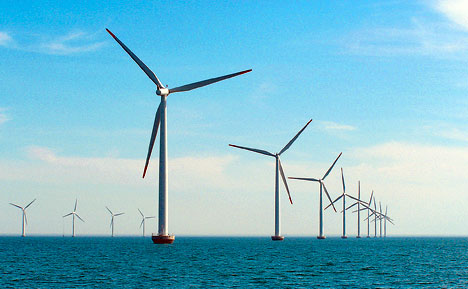 Last week, the Appellate Division of the Superior Court ruled against Fishermen’s Energy in its claim that the New Jersey Board of Public Utilities wrongly denied approval of its wind power project off the coast of Atlantic City. On Friday, Chris Wissemann, chief executive officer of Fishermen’s Energy, said in a press release, “We are disappointed by this decision. The project meets the spirit and letter of the Offshore Wind Development Act, bringing jobs and investment into the state and improving the environment.” Read the rest here 19:40
Last week, the Appellate Division of the Superior Court ruled against Fishermen’s Energy in its claim that the New Jersey Board of Public Utilities wrongly denied approval of its wind power project off the coast of Atlantic City. On Friday, Chris Wissemann, chief executive officer of Fishermen’s Energy, said in a press release, “We are disappointed by this decision. The project meets the spirit and letter of the Offshore Wind Development Act, bringing jobs and investment into the state and improving the environment.” Read the rest here 19:40
“Oyster thieves are on notice,” poachers will soon face stiffer penalties in Virginia
 VMRC commissioner John Bull said in a statement Tuesday. “This new law escalates the potential punishments for egregious violations of our tidal natural resources.” “The vast majority of commercial watermen are honest and law-abiding,” Lauderman said. “But a relatively small number of thieves continue to cause a serious problem that is not diminishing.” VMRC regulates fisheries in the state and also oversees the Marine Police. Read the rest here 19:28
VMRC commissioner John Bull said in a statement Tuesday. “This new law escalates the potential punishments for egregious violations of our tidal natural resources.” “The vast majority of commercial watermen are honest and law-abiding,” Lauderman said. “But a relatively small number of thieves continue to cause a serious problem that is not diminishing.” VMRC regulates fisheries in the state and also oversees the Marine Police. Read the rest here 19:28
Editorial: Halibut population is wobbling
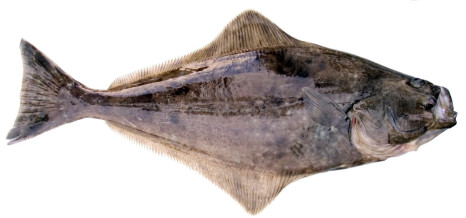 Mismanagement of bycatch — fish caught by accident while boats net other permitted species — is an offensive waste most recently highlighted by a May 30 story in the Seattle Times. The Times’ focus is on the (tinyurl.com/p9vr49l), but the issues involved are familiar to most commercial fishermen. Longstanding bycatch rules are based on distrust of fishermen and somewhat logical, but obviously counterproductive, notions about how to discourage “accidental-on-purpose” behavior. Read the rest here 19:17
Mismanagement of bycatch — fish caught by accident while boats net other permitted species — is an offensive waste most recently highlighted by a May 30 story in the Seattle Times. The Times’ focus is on the (tinyurl.com/p9vr49l), but the issues involved are familiar to most commercial fishermen. Longstanding bycatch rules are based on distrust of fishermen and somewhat logical, but obviously counterproductive, notions about how to discourage “accidental-on-purpose” behavior. Read the rest here 19:17
Representatives and Strengthening Fishing Communities and Increasing Flexibility in Fisheries Management Act.
Congressman Young Shares Thought Upon passage of HR 1335 Pingree opposes rollback of fishery regulations Rep. Rob Bishop, R-Utah, chairman of the House Natural Resources Committee Rep Jones’ changes to fishery management passed in legislation Rep Debbie Dingell slams environmental impact cut in fishery bill Telling fish stories in the House. Kevin McCarthey, Sam Farr Speaker Boehner on MSA Reauthiorization Mass Reps Moulton, Keating, and Lynch, Usage of Asset Forfeiture Funds Rep. Curbelo (FL-26) 16:06
Fisheries Acoustic Survey Newfoundland-Blog No 9-of Cod and Second Chances
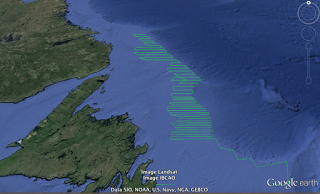 Thanks to funding from the Department of Fisheries and Aquaculture (DFA) and the Research and Development Corporation (RDC) of Newfoundland and Labrador, this is the fifth consecutive year that CFER scientists, led by , have conducted offshore research aboard the RV Celtic Explorer. Although these trips have supported several projects, the focus has been an annual acoustic-trawl survey of the spawning ‘northern’ cod stock that ranges from southern Labrador to northern Grand Bank. Read the rest here 12:07
Thanks to funding from the Department of Fisheries and Aquaculture (DFA) and the Research and Development Corporation (RDC) of Newfoundland and Labrador, this is the fifth consecutive year that CFER scientists, led by , have conducted offshore research aboard the RV Celtic Explorer. Although these trips have supported several projects, the focus has been an annual acoustic-trawl survey of the spawning ‘northern’ cod stock that ranges from southern Labrador to northern Grand Bank. Read the rest here 12:07
Video fish survey simple in concept, challenging in execution
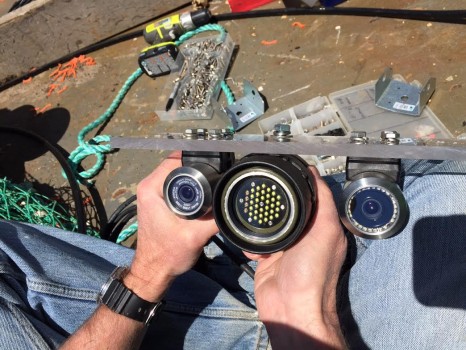 In a multi-media world, conducting fishery stock assessment surveys was stuck in the early 20th century until Dr. Kevin Stokesbury came along.The marine scientist at the UMass School for Marine Science and Technology concluded more than a decade ago that if he could do it using underwater cameras, he could be far more accurate than bottom trawls using questionable net gear in questionable ways. The result is the booming scallop industry, confidently and sustainably fishing thanks to the process of photographing and literally counting the scallops on the ocean floor. They were abundant almost beyond belief. Read the rest here 11:48
In a multi-media world, conducting fishery stock assessment surveys was stuck in the early 20th century until Dr. Kevin Stokesbury came along.The marine scientist at the UMass School for Marine Science and Technology concluded more than a decade ago that if he could do it using underwater cameras, he could be far more accurate than bottom trawls using questionable net gear in questionable ways. The result is the booming scallop industry, confidently and sustainably fishing thanks to the process of photographing and literally counting the scallops on the ocean floor. They were abundant almost beyond belief. Read the rest here 11:48
Michigan Department of Natural Resources considers commercial fishing in Lake Huron
 Michigan is exploring the possibility of commercial fishing for whitefish in southern Lake Huron. The state Department of Natural Resources says it issued a research permit to a commercial fisher to explore populations. Starting this month, large mesh trap nets will be allowed in experimental fishing grounds several miles south of Harbor Beach and north of Port Sanilac. The Michigan waters of southern Lake Huron haven’t been commercially fished in five decades, but commercial fishing is established in Canadian waters. Read the rest here 10:50
Michigan is exploring the possibility of commercial fishing for whitefish in southern Lake Huron. The state Department of Natural Resources says it issued a research permit to a commercial fisher to explore populations. Starting this month, large mesh trap nets will be allowed in experimental fishing grounds several miles south of Harbor Beach and north of Port Sanilac. The Michigan waters of southern Lake Huron haven’t been commercially fished in five decades, but commercial fishing is established in Canadian waters. Read the rest here 10:50
Letter: Fishing industry must unite – Paul Cohan, Gloucester
 In response to the Yankee Fleet article (“Cod restrictions hit charter fleet,” May 25): I think there’s a lesson to be learned from this crash. That being that we all either swim or sink together. We can no longer afford the self-destructive luxury of sniping at each other — commercial vs. recreational, big vs. little, hook vs. net, inshore vs. offshore. NOAA and its masters intentionally employ divisive regulatory tactics in order to prevent us from presenting a united front, which is essential to our survival as a viable industry. Read the rest here 10:33
In response to the Yankee Fleet article (“Cod restrictions hit charter fleet,” May 25): I think there’s a lesson to be learned from this crash. That being that we all either swim or sink together. We can no longer afford the self-destructive luxury of sniping at each other — commercial vs. recreational, big vs. little, hook vs. net, inshore vs. offshore. NOAA and its masters intentionally employ divisive regulatory tactics in order to prevent us from presenting a united front, which is essential to our survival as a viable industry. Read the rest here 10:33
DANGER ON DECK: Fishermen try to make their jobs safer
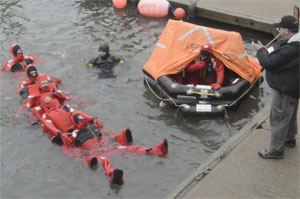 Commercial fishing is known for being hard and grueling work, with long hours that sometimes yield little or no return. It is also among the nation’s most dangerous professions. Addressing a need in the industry Fishing Partnership Support Services aims to eliminate some of those accidents among fishermen in New England through free safety and survival training it offers through the fall and spring at various locations, including Plymouth. Read the rest here 08:42
Commercial fishing is known for being hard and grueling work, with long hours that sometimes yield little or no return. It is also among the nation’s most dangerous professions. Addressing a need in the industry Fishing Partnership Support Services aims to eliminate some of those accidents among fishermen in New England through free safety and survival training it offers through the fall and spring at various locations, including Plymouth. Read the rest here 08:42
Lobster fishery intensifies Machias Seal Island boundary dispute
 In the past, local fishermen based in Cutler, Maine and Grand Manan Island, New Brunswick have feuded over the area, but have been able to sort out their differences informally. But in recent years, at least one Nova Scotia processor as well as aboriginal bands exercising their rights under the Supreme Court of Canada’s Marshall decision have acquired licences that were once part of the Grand Manan fleet. Steven Corkum, the president of Nova Scotia-based Yarmouth Sea Products, law enables him to hire a crew to catch lobster in Zone 38. Read the rest here 06:36
In the past, local fishermen based in Cutler, Maine and Grand Manan Island, New Brunswick have feuded over the area, but have been able to sort out their differences informally. But in recent years, at least one Nova Scotia processor as well as aboriginal bands exercising their rights under the Supreme Court of Canada’s Marshall decision have acquired licences that were once part of the Grand Manan fleet. Steven Corkum, the president of Nova Scotia-based Yarmouth Sea Products, law enables him to hire a crew to catch lobster in Zone 38. Read the rest here 06:36

U.S. House Passes HR 1335 Magnuson-Stevens Reauthorization with Bipartisan Support
This evening, the U.S. House of Representatives passed H.R. 1335, the “Strengthening Fishing Communities and Increasing Flexibility in Fisheries Management Act,” legislation reauthorizing the Magnuson-Stevens Fishery Conservation and Management Act (MSA), the primary law governing fisheries resource management in offshore federal waters. The legislation passed by a bipartisan vote of 225-152. Read the rest here 21:20
Here we go again. Animal Welfare Groups Seek Protection for Thorny Skate
 The Animal Welfare Institute (AWI) and Defenders of Wildlife have asked the National Marine Fisheries Service (NMFS) to list the Northwest Atlantic population of the thorny skate as threatened or endangered under the Endangered Species Act. “This species is in serious trouble in the Northwest Atlantic, and if we don’t move to protect it now, we may never see it in this range again,” said senior staff attorney Jane Davenport at Defenders of Wildlife. Shut up. Read the rest here 20:48
The Animal Welfare Institute (AWI) and Defenders of Wildlife have asked the National Marine Fisheries Service (NMFS) to list the Northwest Atlantic population of the thorny skate as threatened or endangered under the Endangered Species Act. “This species is in serious trouble in the Northwest Atlantic, and if we don’t move to protect it now, we may never see it in this range again,” said senior staff attorney Jane Davenport at Defenders of Wildlife. Shut up. Read the rest here 20:48
Dan Bacher: 2010 article warned: MLPA Initiative will do nothing to stop a big oil spill
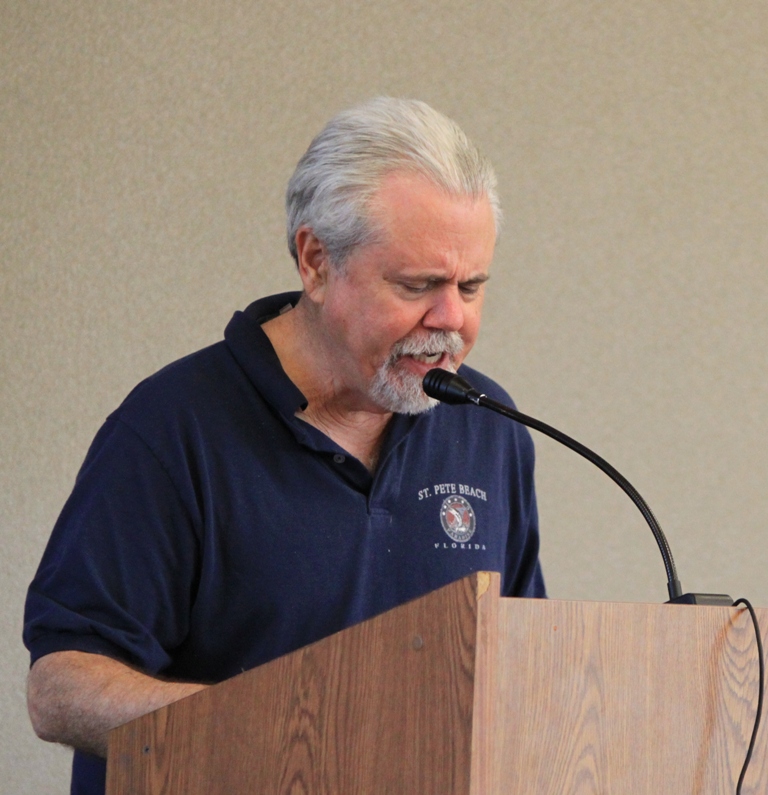 I wrote the following article in 2010 warning of the consequences of not protecting the ocean from oil spills, oil drilling, pollution and all human impacts other than fishing and gathering in the “marine protected areas” created under the. This article warned of the consequences of allowing a Big Oil lobbyist and other corporate operatives to oversee “marine protection” in California. Read the rest here 19:59 (photo)
I wrote the following article in 2010 warning of the consequences of not protecting the ocean from oil spills, oil drilling, pollution and all human impacts other than fishing and gathering in the “marine protected areas” created under the. This article warned of the consequences of allowing a Big Oil lobbyist and other corporate operatives to oversee “marine protection” in California. Read the rest here 19:59 (photo)
Rep. Garret Graves pulls HR 1335 red snapper management amendment

NJ Rep. Pallone opposes fisheries reform bill HR 1335
 On Monday, Rep. Frank Pallone, Jr., D-NJ, opposed the Magnuson-Stevens reauthorization legislation, H.R. 1335: Strengthening Fishing Communities and Increasing Flexibility in Fisheries Management Act, introduced by Rep. Don Young of Alaska. While Rep. Pallone has long been in favor of increased flexibility in Magnuson-Stevens, he said the “lack of a bipartisan approach has left this bill to reform fisheries policies with unacceptable flaws”. BUNK! Read the rest here 19:08
On Monday, Rep. Frank Pallone, Jr., D-NJ, opposed the Magnuson-Stevens reauthorization legislation, H.R. 1335: Strengthening Fishing Communities and Increasing Flexibility in Fisheries Management Act, introduced by Rep. Don Young of Alaska. While Rep. Pallone has long been in favor of increased flexibility in Magnuson-Stevens, he said the “lack of a bipartisan approach has left this bill to reform fisheries policies with unacceptable flaws”. BUNK! Read the rest here 19:08
House bill HR 1335 would add ‘flexibility’ to federal fishing law (Still in session at post time)
 A bill sponsored by Rep. Don Young, R-Alaska, was debated on the House floor and appeared likely to be approved. The bill would reauthorize the four-decade-old Magnuson-Stevens Fishery Conservation and Management Act, the top law regulating fishing in U.S. oceans, and give regional fisheries managers greater flexibility to shift catch totals as ocean conditions and science change. Read the rest here 17:38
A bill sponsored by Rep. Don Young, R-Alaska, was debated on the House floor and appeared likely to be approved. The bill would reauthorize the four-decade-old Magnuson-Stevens Fishery Conservation and Management Act, the top law regulating fishing in U.S. oceans, and give regional fisheries managers greater flexibility to shift catch totals as ocean conditions and science change. Read the rest here 17:38
A Fisherman’s Perspective: Catch Shares – Support HR 1335

EDF’s campaign to implement catch shares in our nation’s fisheries is not only misguided, but it is a serious threat to the livelihoods of the majority of American fishermen. Fishermen beware: you are gazing directly into the friendly eyes of a lion in sheep’s clothing! This is one of those panacea, cure-all fixes for fisheries management which NGO’s love to promote because they are easy sells to the legions of non-fishing folks who are easily convinced that something needs to be saved because EDF tells them so and they don’t have enough other information to know any better. Read the rest here 13:22
Asian demand, low supply set record price on Maine baby eels
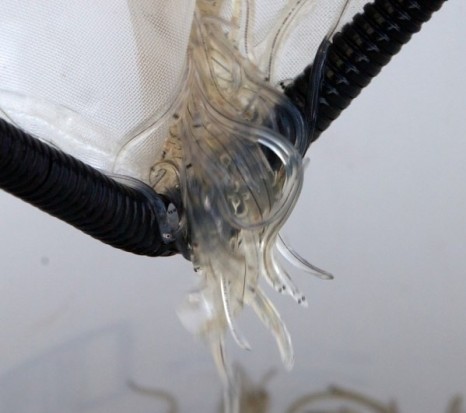 Prices for tiny glass eels caught in river inlets along the Maine coast soared to record levels this year because a slow season resulted in reduced catch, fishermen and dealers say. The baby eels called elvers sold for $2,500 or more per pound at times this season due to low supply, fishermen and dealers say, beating the old record of $1,868.73 in 2012. This year’s average price, which the state has not yet calculated, seems sure to dwarf last year’s and possibly eclipse 2012, fishermen said. Read the rest here 12:50
Prices for tiny glass eels caught in river inlets along the Maine coast soared to record levels this year because a slow season resulted in reduced catch, fishermen and dealers say. The baby eels called elvers sold for $2,500 or more per pound at times this season due to low supply, fishermen and dealers say, beating the old record of $1,868.73 in 2012. This year’s average price, which the state has not yet calculated, seems sure to dwarf last year’s and possibly eclipse 2012, fishermen said. Read the rest here 12:50
Ramea’s new secondary scallop-processing plant started its first production May 24.
 Plant owner Danny Dumaresque said it’s an exciting time for everyone as the production moves ahead as planned, although its original opening date of April was delayed due to winter weather. Dumareque said there are about 30 people on payroll at the moment, including the operations manager, quality control administrator and maintenance manager, who were all hired locally. The plant processes half-shelled scallops by removing their pancreas and freezing the remainder with added ingredients. Read the rest here 12:02
Plant owner Danny Dumaresque said it’s an exciting time for everyone as the production moves ahead as planned, although its original opening date of April was delayed due to winter weather. Dumareque said there are about 30 people on payroll at the moment, including the operations manager, quality control administrator and maintenance manager, who were all hired locally. The plant processes half-shelled scallops by removing their pancreas and freezing the remainder with added ingredients. Read the rest here 12:02
Misfits for Magnuson – Written by Jes Hathaway – Support HR 1335
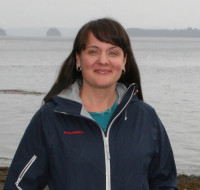 I admit I had the wind knocked out of my sails late last week when I read that President Obama has opted to dismiss out of hand Alaska Rep. Don Young’s Magnuson-Stevens reauthorization draft, reportedly based on the advice of his staff. After the industry mustered support for the bill that could possibly be a Hail Mary pass for the Northeast groundfish fleet, I was excited to see it get widespread support (though Senate approval was uncertain), because that means more people understand the inordinate amount of pain under which New England,,, Read the rest here 11:31
I admit I had the wind knocked out of my sails late last week when I read that President Obama has opted to dismiss out of hand Alaska Rep. Don Young’s Magnuson-Stevens reauthorization draft, reportedly based on the advice of his staff. After the industry mustered support for the bill that could possibly be a Hail Mary pass for the Northeast groundfish fleet, I was excited to see it get widespread support (though Senate approval was uncertain), because that means more people understand the inordinate amount of pain under which New England,,, Read the rest here 11:31
Your View: Not all fishermen support Young bill, By Greg Walinski
 We need to hang on to the fundamentals of the act, while improving monitoring, data collection systems — for both commercial and recreational fishing — and bycatch accountability. I recognize that this bill does create a good framework for the regional fishery councils to implement electronic monitoring and stresses the importance of cooperative research, but it also dismantles some basic requirements to achieve healthy fish populations by building in exemptions and loopholes. Read the rest here 11:15
We need to hang on to the fundamentals of the act, while improving monitoring, data collection systems — for both commercial and recreational fishing — and bycatch accountability. I recognize that this bill does create a good framework for the regional fishery councils to implement electronic monitoring and stresses the importance of cooperative research, but it also dismantles some basic requirements to achieve healthy fish populations by building in exemptions and loopholes. Read the rest here 11:15
Coast Guard responds to grounded fishing vessel near Half Moon Bay
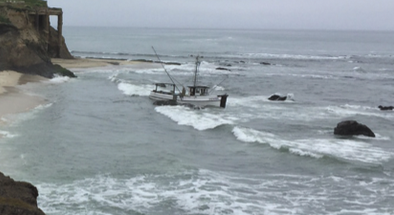 Command Center watchstanders were notified at 11:22 p.m. Friday from a 50-foot commercial fishing vessel that had run aground near Half Moon Bay seven miles south of Pillar Point Harbor. The 50-foot vessel identified through FN inquiry is F/V Denise. Parker Diving Service fully removed all fuel from the fishing vessel before they and Coast Guard personnel departed the scene. The vessel owner is coordinating with NOAA for the vessel’s salvage and removal from the National Marine Sanctuary. Read the rest here 10:06
Command Center watchstanders were notified at 11:22 p.m. Friday from a 50-foot commercial fishing vessel that had run aground near Half Moon Bay seven miles south of Pillar Point Harbor. The 50-foot vessel identified through FN inquiry is F/V Denise. Parker Diving Service fully removed all fuel from the fishing vessel before they and Coast Guard personnel departed the scene. The vessel owner is coordinating with NOAA for the vessel’s salvage and removal from the National Marine Sanctuary. Read the rest here 10:06
Despite promising numbers, king salmon managers still uncertain about run strength
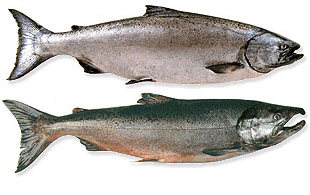 A strong, early pulse of king salmon on southern and central Kenai Peninsula streams has runs off to a good start. But, managers say it is still too early to tell if the Cook Inlet’s ailing king salmon runs will rally from the last few years of poor returns. Thirteen days after the Alaska Department of Fish and Game began counting early run king salmon on the Kenai River, there are hundreds more fish estimated to have passed the sonar by the end of May than the last two years combined. On the Anchor River, there were more kings counted in the river by May 30 than any year since 2007. Read the rest here 09:30
A strong, early pulse of king salmon on southern and central Kenai Peninsula streams has runs off to a good start. But, managers say it is still too early to tell if the Cook Inlet’s ailing king salmon runs will rally from the last few years of poor returns. Thirteen days after the Alaska Department of Fish and Game began counting early run king salmon on the Kenai River, there are hundreds more fish estimated to have passed the sonar by the end of May than the last two years combined. On the Anchor River, there were more kings counted in the river by May 30 than any year since 2007. Read the rest here 09:30






 The recent closure of 138 square miles of fishing grounds impacted by the Refugio oil spill has prompted commercial fishermen based at Santa Barbara Harbor to initiate claims against Plains All American Pipeline, the owner of the faulty infrastructure that dumped more than 100,000 gallons of crude along the Gaviota coastline on May 19. Several commercial fisheries — including lobster, crab, shrimp, halibut, urchin, squid, whelk, and sea cucumber, among others — have grounds in the closed area,,,
The recent closure of 138 square miles of fishing grounds impacted by the Refugio oil spill has prompted commercial fishermen based at Santa Barbara Harbor to initiate claims against Plains All American Pipeline, the owner of the faulty infrastructure that dumped more than 100,000 gallons of crude along the Gaviota coastline on May 19. Several commercial fisheries — including lobster, crab, shrimp, halibut, urchin, squid, whelk, and sea cucumber, among others — have grounds in the closed area,,, 




























